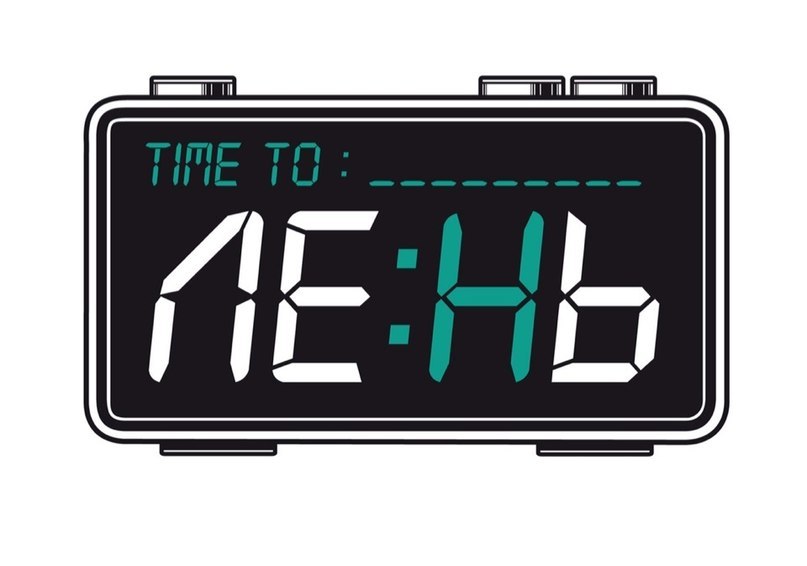Stop working, let's be lazy.
If I ask you to name the factors of personal productivity, then, most likely, I will hear words like “goal setting”, “time management”, “persistence”. Will there be laziness in this list? Yes, the usual, so close, familiar to all and carefully hidden? Let me make, at first glance, an absurd statement: laziness is one of the factors of productive work!

Productivity - the ability of a person to produce something: to write books, to implement projects, to stage plays, to sell equipment. And for this you need certain conditions or factors.
1. Motivation. Why does a person strive to work as well as possible? It is stimulated by high salary, position in society, promotion on the career ladder, the realization of yourself in your favorite business. The more important the reason - the stronger the motivation to work.
2. Setting goals. I try to set two goals for each project: global and local. For example, the global goal is literacy improvement, and the local one is to study the punctuation section.
')
3. Planning. This is a kind of ladder to the goal, and on the steps are all the necessary tasks: to learn, distribute, analyze, develop, release. So gradually, step by step - and we are on top!
4. Support for others. Alone, even implementing the most interesting projects can be difficult or boring. And sometimes you want to boast of achievements or get a powerful incentive to again rush to the goal. This advantage of SmartProgress is to enable each of us to see the support of friends and colleagues when we reach our goal. Sometimes on time, the said kind word is cool and inspiring.

5. Suitable setting. As my boss said, “before demanding results from an employee, make sure that you created all the necessary conditions for him”. What kind of productivity can we talk about if the Internet works like a lame nag, the laptop desperately signals a problem, and the technical task changes every 2 hours?
6. Laziness. And let's talk about this factor more.
So, laziness as an important element of productive work. Do you want to replace this word with “rest”? Not quite right. We can relax with friends over a cup of coffee, go skiing or play chess. Laziness means the usual doing nothing. In the high-speed century, when it is necessary to push in at 24 o'clock what is not enough for three days, just to do nothing is a luxury.

But inaction is vital for the brain. Neuroscientists say there are 2 networks of neurons in the brain:
1. Network of target activity. It arises when you plan your activities, solve specific problems with concentration and diligence.
2. Network undirected activity. It is included in the work when you are inactive: look out the window, lie on the sofa, eyes closed or looking at the pattern on the wallpaper.
Just the facts!
• Scientists in 2001 discovered a network of undirected brain activity that comes at the time of alert only at rest and “brings” outside what is stored in the subconscious.
• Excessive amounts of work lead to stress, fatigue, and reduce human productivity. In people - "multi-tasking" catastrophically decreases the ability to distinguish between important and unimportant information.
• The brain is always active, only its zones of activity during rest and actions change places.
By allowing thoughts to wander freely in the mind, we release the latent powers of the brain, deriving various associations from the subconscious. Recall Newton and the apple. The scientist was actively working - he investigated the facts, compared the distances from the planets to the Sun and in general was fully embraced by the laws of mechanics. Now he would become an inspiring example for all active workers!
What did Newton do at the time when the insight came: he drew charts, planned his further research, compiled the intellect card? Not. Newton was sitting in the garden, doing nothing when he saw a falling apple. All knowledge, assumptions, associations and facts were spinning in his head, trying to establish logical connections - this was how Newton's brain worked (and now ours works). But for the subconscious to be involved in the work and all the elements of the problem are reduced to a single system, it is important to keep the brain idle.
Newton turned a huge preliminary work. He undoubtedly had motivation, he aspired to his goal and surrounded himself with like-minded people. But idleness was the trigger for the discovery. It was in this state that the brain reacted to the usual phenomenon with an unusual thought.
I once talked about this topic with a colleague, and she said: “And I think, why all the most interesting, efficient ideas, non-standard solutions always come to mind before going to bed? It seems that I don’t think about anything, but my thoughts and ideas seem to be invented. I began to keep a notebook and a pencil near the bed. ” Andrew Smart in his book “On the Use of Laziness” explains this phenomenon by the state of idleness.

1. Allow yourself this. Just give a moral right to do nothing. To heighten the conscience, you can imagine how the gears in your head are spinning hard, generating interesting ideas while you are royally reclining on the couch.
2. Do not scold yourself for the allegedly lost time that you could spend profitably, making a plan for the next week, or rechecking the project for errors.
3. While in the workplace, arrange 10-15 minute periods of idleness. Only not with colleagues in the smoking room and not watching social networks. Sit back, close your eyes and relax. You can look out the window or listen to relaxing music.
4. It is especially important to stay idle after intensive training, giving the brain the opportunity to perceive and decompose new information on the shelves.
5. Allow thoughts to wander freely, linking in fancy images. As soon as you concentrate on something, the network of passive rest of the brain turns off. And in moments of laziness, on the contrary, the activity of this network is important.
I am familiar with this state of constant employment and concentration: synchronization of a smartphone with a laptop, careful planning, hard time management, combining several cases at the same time and as a result - the wildest fatigue. There was such a difficult, but for some reason not very productive period in my life.
Then I refused to part of the work, freeing up time for idleness. And after a while, I noticed that I’ve been inventing more interesting topics for articles, responding to new projects, and just positively looking at life.
So, lazy friends - this is extremely useful for our productivity with you!

Productivity - the ability of a person to produce something: to write books, to implement projects, to stage plays, to sell equipment. And for this you need certain conditions or factors.
Productivity factors
1. Motivation. Why does a person strive to work as well as possible? It is stimulated by high salary, position in society, promotion on the career ladder, the realization of yourself in your favorite business. The more important the reason - the stronger the motivation to work.
2. Setting goals. I try to set two goals for each project: global and local. For example, the global goal is literacy improvement, and the local one is to study the punctuation section.
')
3. Planning. This is a kind of ladder to the goal, and on the steps are all the necessary tasks: to learn, distribute, analyze, develop, release. So gradually, step by step - and we are on top!
4. Support for others. Alone, even implementing the most interesting projects can be difficult or boring. And sometimes you want to boast of achievements or get a powerful incentive to again rush to the goal. This advantage of SmartProgress is to enable each of us to see the support of friends and colleagues when we reach our goal. Sometimes on time, the said kind word is cool and inspiring.

5. Suitable setting. As my boss said, “before demanding results from an employee, make sure that you created all the necessary conditions for him”. What kind of productivity can we talk about if the Internet works like a lame nag, the laptop desperately signals a problem, and the technical task changes every 2 hours?
6. Laziness. And let's talk about this factor more.
So, laziness as an important element of productive work. Do you want to replace this word with “rest”? Not quite right. We can relax with friends over a cup of coffee, go skiing or play chess. Laziness means the usual doing nothing. In the high-speed century, when it is necessary to push in at 24 o'clock what is not enough for three days, just to do nothing is a luxury.

But inaction is vital for the brain. Neuroscientists say there are 2 networks of neurons in the brain:
1. Network of target activity. It arises when you plan your activities, solve specific problems with concentration and diligence.
2. Network undirected activity. It is included in the work when you are inactive: look out the window, lie on the sofa, eyes closed or looking at the pattern on the wallpaper.
Just the facts!
• Scientists in 2001 discovered a network of undirected brain activity that comes at the time of alert only at rest and “brings” outside what is stored in the subconscious.
• Excessive amounts of work lead to stress, fatigue, and reduce human productivity. In people - "multi-tasking" catastrophically decreases the ability to distinguish between important and unimportant information.
• The brain is always active, only its zones of activity during rest and actions change places.
About the benefits of laziness
By allowing thoughts to wander freely in the mind, we release the latent powers of the brain, deriving various associations from the subconscious. Recall Newton and the apple. The scientist was actively working - he investigated the facts, compared the distances from the planets to the Sun and in general was fully embraced by the laws of mechanics. Now he would become an inspiring example for all active workers!
What did Newton do at the time when the insight came: he drew charts, planned his further research, compiled the intellect card? Not. Newton was sitting in the garden, doing nothing when he saw a falling apple. All knowledge, assumptions, associations and facts were spinning in his head, trying to establish logical connections - this was how Newton's brain worked (and now ours works). But for the subconscious to be involved in the work and all the elements of the problem are reduced to a single system, it is important to keep the brain idle.
Newton turned a huge preliminary work. He undoubtedly had motivation, he aspired to his goal and surrounded himself with like-minded people. But idleness was the trigger for the discovery. It was in this state that the brain reacted to the usual phenomenon with an unusual thought.
I once talked about this topic with a colleague, and she said: “And I think, why all the most interesting, efficient ideas, non-standard solutions always come to mind before going to bed? It seems that I don’t think about anything, but my thoughts and ideas seem to be invented. I began to keep a notebook and a pencil near the bed. ” Andrew Smart in his book “On the Use of Laziness” explains this phenomenon by the state of idleness.

How to be lazy
1. Allow yourself this. Just give a moral right to do nothing. To heighten the conscience, you can imagine how the gears in your head are spinning hard, generating interesting ideas while you are royally reclining on the couch.
2. Do not scold yourself for the allegedly lost time that you could spend profitably, making a plan for the next week, or rechecking the project for errors.
3. While in the workplace, arrange 10-15 minute periods of idleness. Only not with colleagues in the smoking room and not watching social networks. Sit back, close your eyes and relax. You can look out the window or listen to relaxing music.
4. It is especially important to stay idle after intensive training, giving the brain the opportunity to perceive and decompose new information on the shelves.
5. Allow thoughts to wander freely, linking in fancy images. As soon as you concentrate on something, the network of passive rest of the brain turns off. And in moments of laziness, on the contrary, the activity of this network is important.
I am familiar with this state of constant employment and concentration: synchronization of a smartphone with a laptop, careful planning, hard time management, combining several cases at the same time and as a result - the wildest fatigue. There was such a difficult, but for some reason not very productive period in my life.
Then I refused to part of the work, freeing up time for idleness. And after a while, I noticed that I’ve been inventing more interesting topics for articles, responding to new projects, and just positively looking at life.
So, lazy friends - this is extremely useful for our productivity with you!
Source: https://habr.com/ru/post/295930/
All Articles